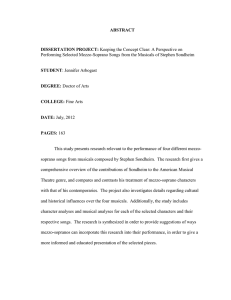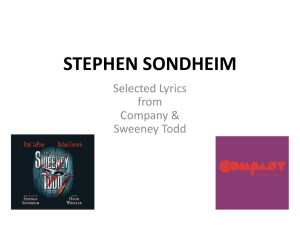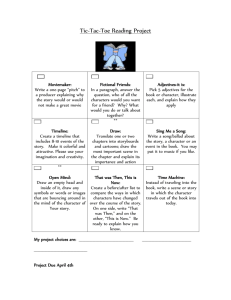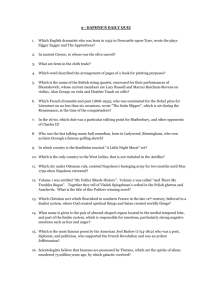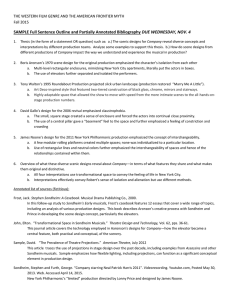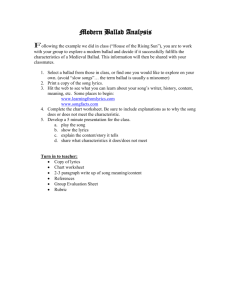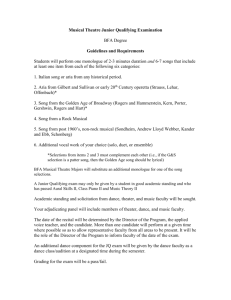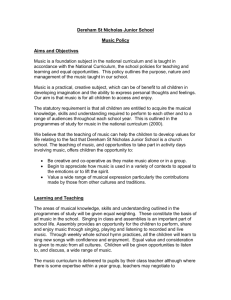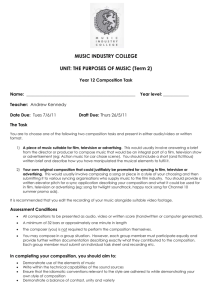musical theatre vocabulary - Roundabout Theatre Company
advertisement
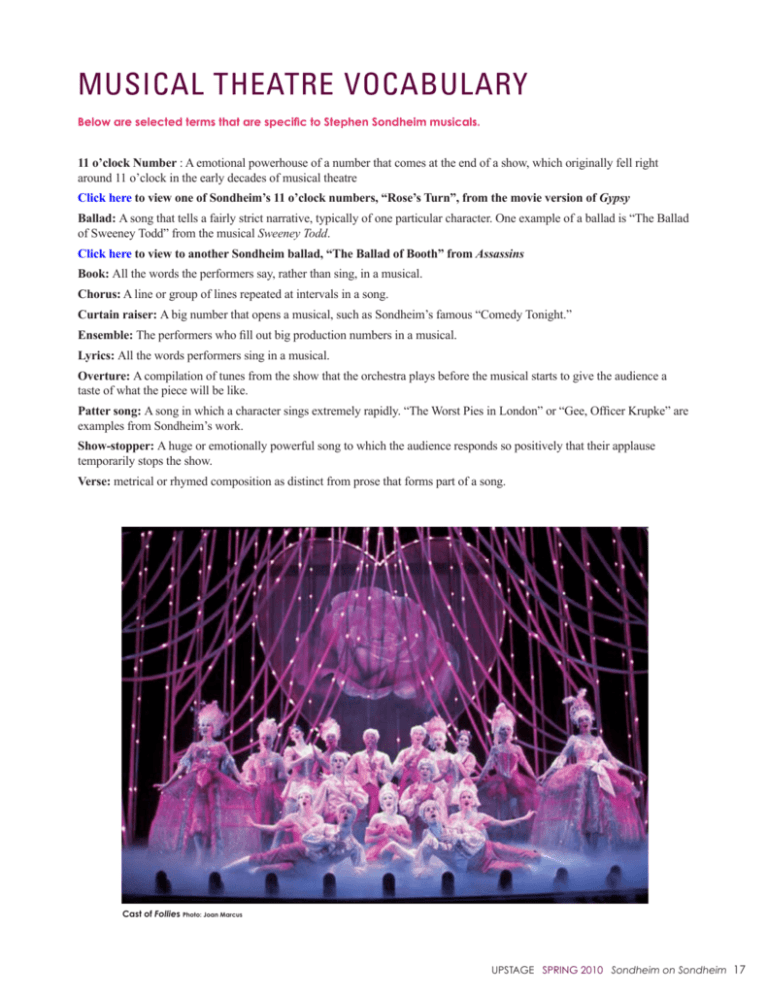
Musical Theatre Vocabulary Below are selected terms that are specific to Stephen Sondheim musicals. 11 o’clock Number : A emotional powerhouse of a number that comes at the end of a show, which originally fell right around 11 o’clock in the early decades of musical theatre Click here to view one of Sondheim’s 11 o’clock numbers, “Rose’s Turn”, from the movie version of Gypsy Ballad: A song that tells a fairly strict narrative, typically of one particular character. One example of a ballad is “The Ballad of Sweeney Todd” from the musical Sweeney Todd. Click here to view to another Sondheim ballad, “The Ballad of Booth” from Assassins Book: All the words the performers say, rather than sing, in a musical. Chorus: A line or group of lines repeated at intervals in a song. Curtain raiser: A big number that opens a musical, such as Sondheim’s famous “Comedy Tonight.” Ensemble: The performers who fill out big production numbers in a musical. Lyrics: All the words performers sing in a musical. Overture: A compilation of tunes from the show that the orchestra plays before the musical starts to give the audience a taste of what the piece will be like. Patter song: A song in which a character sings extremely rapidly. “The Worst Pies in London” or “Gee, Officer Krupke” are examples from Sondheim’s work. Show-stopper: A huge or emotionally powerful song to which the audience responds so positively that their applause temporarily stops the show. Verse: metrical or rhymed composition as distinct from prose that forms part of a song. Cast of Follies Photo: Joan Marcus UPSTAGE SPRing 2010 Sondheim on Sondheim 17
